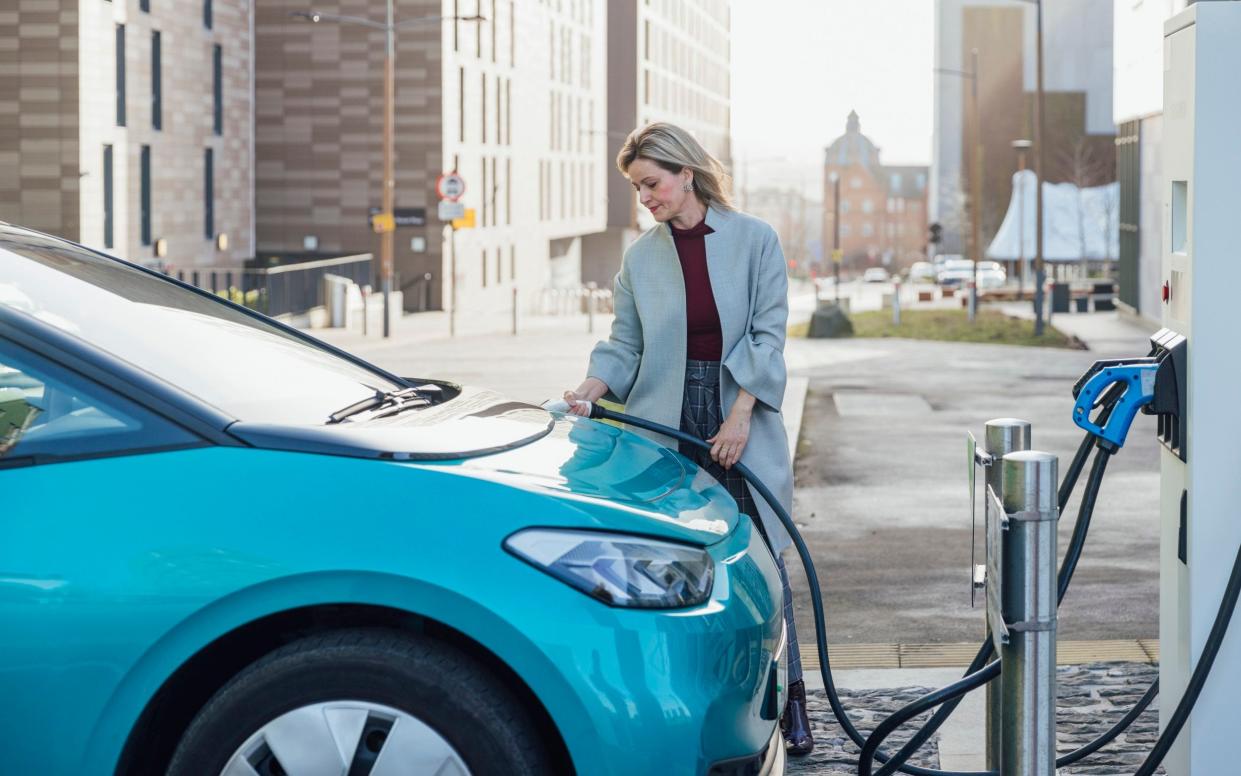Ford warns net zero targets will push up petrol car prices

A top executive at Ford has warned net zero targets could force the car giant to cut back sales of petrol cars in the UK, pushing up prices for drivers.
Martin Sander, general manager of the company’s European electric car business, called on ministers to make sure the zero emissions vehicle (ZEV) mandate was “in line with consumer demand” amid new figures showing that uptake is lagging behind sales targets enshrined in law.
In order to comply with the rules, he warned that Ford may have to simply sell fewer petrol cars in the UK so that the proportion of electric vehicles (EVs) it sells rises artificially.
Speaking at the Financial Times Future of the car summit, he said: “It’s really important for politicians to monitor what is going on and that the ZEV targets, this year, next year, going forward, are roughly in line with consumer demand.
“This is what we need. You cannot push vehicles into the market against demand.”
He added Ford was confident it would be able to comply with the laws but was “not going to pay penalties”, adding: “The only alternative is to take our shipments of ICE [internal combustion engine] vehicles to the UK down and sell them somewhere else.
“I don’t know if consumers will like seeing the ICE prices going up.”
It comes just weeks after Vauxhall owner Stellantis also warned it could restrict sales of cars in the UK in response to the ZEV mandate. The mandate came into force in January and requires at least 22pc of car sales by manufacturers to be electric.
Mr Sander’s comments came as the Society of Motor Manufacturers and Traders (SMMT) warned that EVs were now facing a “diminishing market share” with manufacturers set to significantly miss the targets.
The SMMT is forecasting that of 2m cars set to be registered in 2024, just 19.8pc will be electric – down from a previous estimate of 21pc.
That means at least some car makers are on course to miss the target set by the Government’s ZEV mandate. Companies that miss the target are at risk of being fined. The SMMT does not break down its forecasts by manufacturer.
The ZEV mandate ratchets up further annually until it reaches 80pc in 2030, before a ban on the sale of new petrol cars in 2035.
A total of 22,717 electric cars were registered in April, according to the SMMT, an increase of 10.7pc compared to a year earlier, but this was overwhelmingly driven by businesses.
Sales to private consumers made up just 15.6pc of this, down from 22.1pc in 2023, according to the Society of Motor Manufacturers and Traders (SMMT).
The actual number of electric cars sold to private consumers fell from 4,535 to 3,544, a drop of 22pc.
In April, overall EV market share among businesses and consumers rose from 15.4pc to 16.9pc on an annual basis.
The warning comes after figures from Auto Trader revealed that new EVs sold on the platform were being listed at record discount levels as dealerships struggled to shift them.
Mike Hawes, the SMMT’s chief executive, said, “Although attractive deals on EVs are in place, manufacturers cannot fund the mass market transition single-handedly.
“Temporarily cutting VAT, treating EVs as fiscally mainstream not luxury vehicles, and taking steps to instil consumer confidence in the chargepoint network will drive the market growth on which Britain’s net zero ambition depends.”
At the same time, April’s figures showed growing sales of plug-ins and hybrids which rose by 22.1pc and 16.7pc respectively.
Plug-ins represented 7.8pc of the market, while hybrids accounted for 13.1pc.

